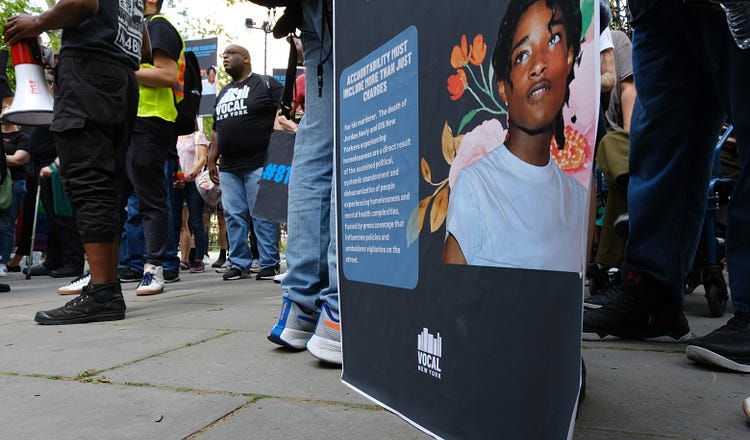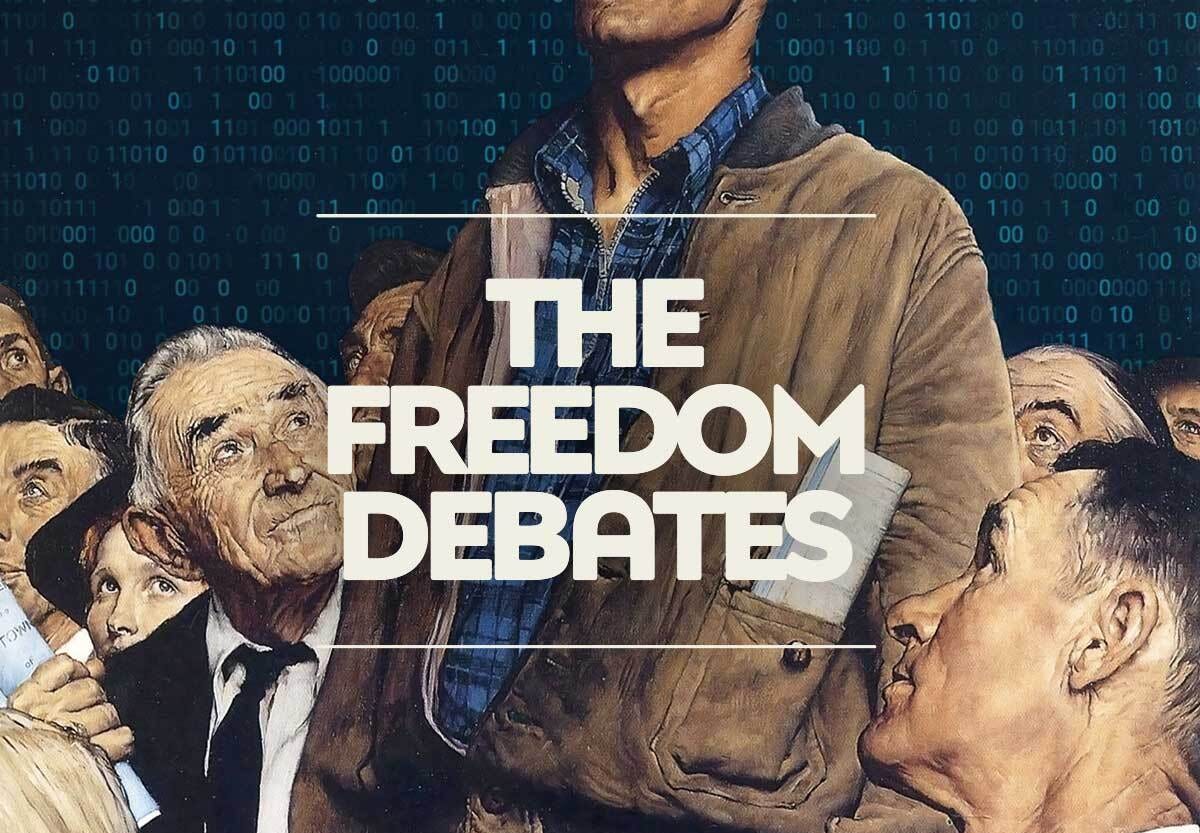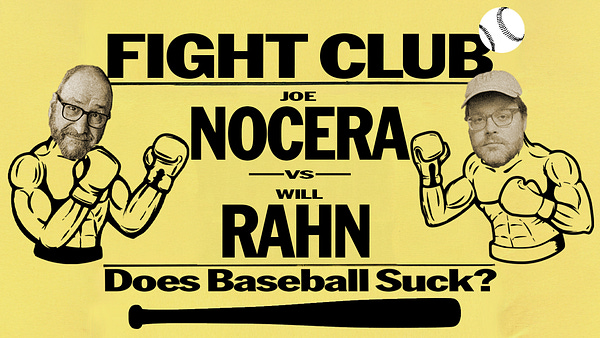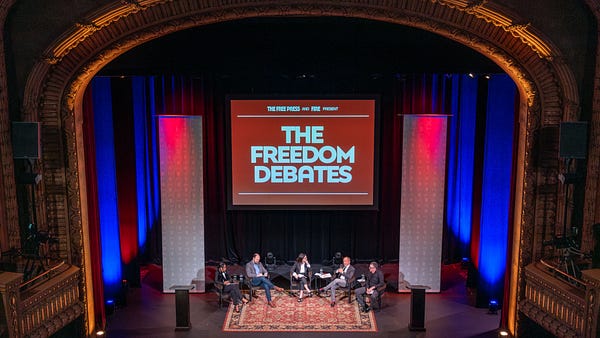
It has been six weeks since Jordan Neely, a homeless man suffering from severe mental illness, was choked to death on a subway car by a former Marine named Daniel Penny. Many on the car were terrified of Neely, who had been threatening commuters. Penny, responding to a scene that has become all too familiar in New York’s subway system, restrained him in a chokehold that ultimately ended his life.
Those are the basic facts of a story that’s still fueling a cultural war across the country. To progressives, Neely, who was black, is another victim of systemic racism. His killing was a lynching. His killer, who is white, is a murderer. To others, Neely’s fate is a parable. When the police won’t stop aggressors, vigilantes will fill the void. When psychotics stalk the subways, they argue, what do you expect?
In the latest episode of Honestly, I moderate a conversation that explores a third narrative to explain the death of Jordan Neely. Here was a man suffering from severe mental illness, and who had been flagged by the city’s public health system. He was on the list of 50 New Yorkers of most concern to the police. At the time of his death, there was a warrant out for his arrest.
My guests today have all thought deeply about the failures of our mental health system and how it connects to Jordan Neely’s fate.
Jonathan Rosen is the author of The Best Minds: A Story of Friendship, Madness, and the Tragedy of Good Intentions. This memoir charts Rosen’s friendship with a brilliant young man who slowly succumbs to the ravages of schizophrenia and eventually murders his pregnant fiancée. In the course of the book, Rosen also explains how national, state, and local mental health policy has allowed many of our most disturbed citizens to slip through the cracks.
Novelist and journalist Kat Rosenfield recently wrote in Unherd about the mixed signals we receive in modern society about when to call out breaches of social decorum and when to look the other way. What is the right response to a dangerous man on a subway who appears to have made a break with reality?
Rafael Mangual, a legal policy expert at the Manhattan Institute, argues that many of the policies progressives favor as an alternative to incarcerating the mentally ill failed Jordan Neely.
There are no easy answers. A few things, however, are clear. Neely was known both to the police and to New York’s public health system. He was considered a danger to himself and others. And yet none of the safeguards and early warnings worked. In today’s discussion, which you can listen to below, we attempt to find out why.
To support more of work bringing you thought-provoking discussions about current events, become a Free Press subscriber today:














A homeless person!! What is that? People who are truly homeless will only be so for a season. They will find help if a veteran, loss job or any other mishap. Most are nothing but bums that will not work and dope people. Homeless people will find help. Bums just bleed the system.
What frustrates me the most about Homicide and Crime these days, is that the murderer is often on a list & known to police to be dangerous. Yet even though these people are criminals and clearly known to be a danger, nothing is done. This is the pattern time &time again. Many of the school shooters and mass shooters are known to be dangerous, there are warnings, yet nothing is done. Many who kill their wives or girlfriends had said they would do it, the authorities knew, yet nothing is done. Most of the terrorists as well. there are warnings beforehand but nothing done. Why???